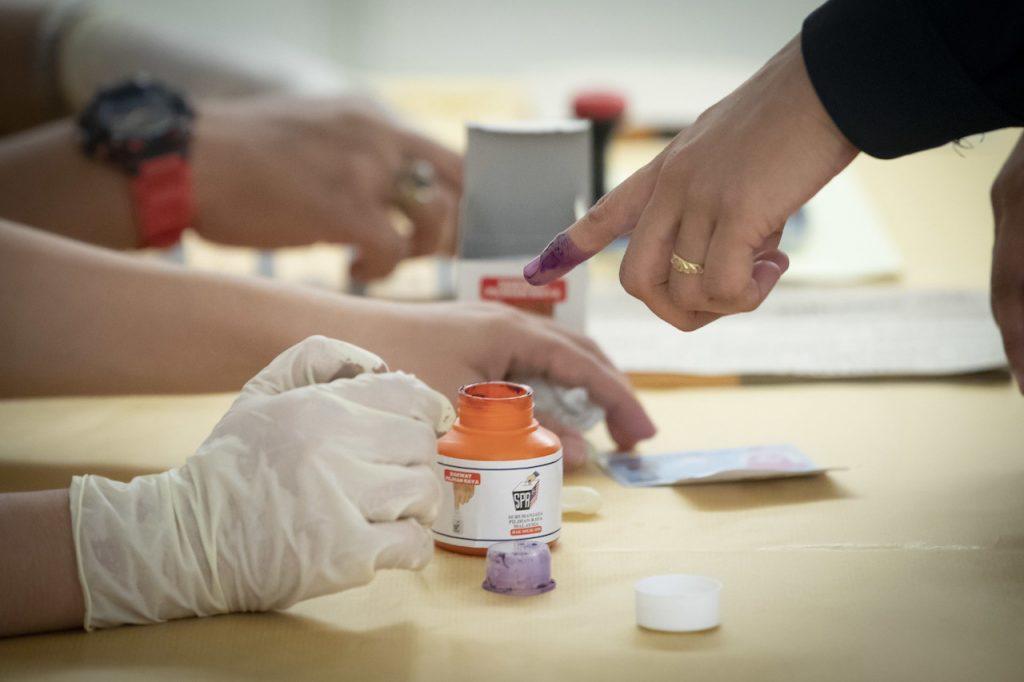Elections can wait, Sarawak politicians agree after health DG’s warning
Unconvinced that the state can reach its target of herd immunity by August, they urge the EC to undertake reforms to facilitate postal voting.
Just In
Politicians from all sides in Sarawak appear to agree that the state election, due in June, can wait following the fierce spike in daily Covid-19 infections there.
They said the state election could be held once the vaccination programme’s goal of reaching 70% herd immunity is achieved.
This comes amid catastrophic scenes in India which recently held five massive state elections, triggering an explosion of daily cases numbering in the tens of thousands.
State Tourism, Arts and Culture Minister Abdul Karim Rahman Hamzah said one way to accelerate herd immunity was to consider the AstraZeneca vaccine, following the success of the pilot programme in Selangor and Kuala Lumpur where slots were fully booked within hours despite the bad publicity surrounding the brand.
“I’m not a medical doctor but from what I read about Pfizer and AstraZeneca, both are good. Tens of millions of people have been vaccinated with these vaccines,” Karim told MalaysiaNow.
“I feel Sarawak should accept this vaccine too if it is available, in our efforts to get as many Sarawakians as possible vaccinated following the recent ‘opening’ for those who wish to be vaccinated with AstraZeneca,” he said.
But whatever the case, elections should be avoided at all costs, he said, echoing the view of health director-general Dr Noor Hisham Abdullah who warned earlier this week that any move towards holding polls would result in a replication of the health catastrophe in India.
“The safety and welfare of Sarawakians is of the utmost importance. I fully agree with the call by our health director-general to postpone the election until the situation gets better,” said Karim, who is the vice-president of PBB, the lynchpin party of the ruling Gabungan Parti Sarawak (GPS).
State opposition leader Wong Soon Koh also said he could not see polls being called any time soon.
“I fully agree that the state election should be postponed until the pandemic is well contained.
“We should not follow India’s footsteps. After all, we are now under the emergency ordinance. I think there are ways the administration can continue until the Covid-19 situation improves.”
However, he was not confident that herd immunity in Sarawak could be achieved by August, the target set by the state government.
Sarawak DAP’s Dr Kelvin Yii agreed, blaming the low rate of vaccination.
He said Sarawakians should be given the freedom to opt for the AstraZeneca vaccine as implemented in Kuala Lumpur and Selangor.
“Either way, we will need to wait until the majority of the population is immunised. Only then can an election with the necessary adjustments be even considered.”
He called on the Election Commission (EC) to break away from conventional ways of holding polls.
“This includes safety and security measures to make sure any postal or absentee voting process or facilities must be tamper-proof, transparent, fair and convenient for eligible voters so that it will instil public confidence in the system itself.”
Yii said this was even more critical as some 20% of eligible Sabah and Sarawak voters live and work in the peninsula.
“This is why I am calling on the EC to expedite the process for postal voting or any other means to enable Malaysians who want to vote to do so without much inconvenience.
“Such a reform is even more pertinent, especially with the upcoming Sarawak state election.”
In a recent Covid-19 press briefing, Noor Hisham warned that any state election in Sarawak would mean the movement of people from the peninsula, including voters.
He cited as example a cluster of more than 2,000 infections caused by an individual from Johor who travelled to Sarawak.
“Imagine if Sarawakians return from the peninsula to cast their votes. There would definitely be infections. This is what we fear,” he said, adding that any increase of infections in rural Sarawak would be difficult to tackle.
Subscribe to our newsletter
To be updated with all the latest news and analyses daily.
